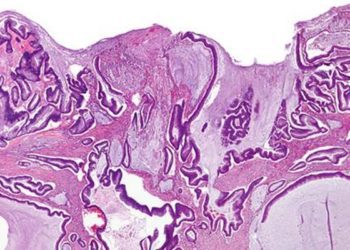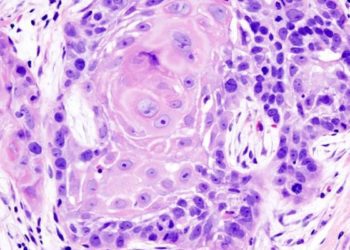Low household income associated with worse outcomes for estrogen receptor-positive breast cancer
1. Low household income is associated with higher 21-gene recurrence scores (score based on gene expression signatures that indicated risk of distant metastasis) and significantly worse survival outcomes among those with scores below 26 for ER positive breast cancer.
2. Income levels not associated with surgical outcomes when 21-gene recurrence scores were 26 or higher.
Evidence Rating Level: 2 (Good)
Low socioeconomic status (SES) is a risk factor for unfavorable breast cancer outcomes. Previous studies have found that low income is associated with a higher incidence of triple negative breast cancer, however the relationship between low income and 21-gene recurrence score (RS) for patients with estrogen receptor (ER)-positive breast cancer is unknown. RS is a score based on gene expression signatures indicating the risk of distant metastasis, ranging from 0 to 100 with RS of 25 or below indicating non-high risk and RS above 25 indicating high risk. This observational cohort study evaluated the association of income levels with RS and overall survival (OS) for those with nonmetastatic ER-positive breast cancer. The study included 119 478 women, 68.8% of whom had high income (above the median household income of $50 353) and 31.2% had low income (below the median household income of $50 353). Compared to high income, low income was associated with a higher RS (adjusted odds ratio [aOR], 1.11; 95% CI, 1.06-1.16) and low income was also associated with worse OS (adjusted hazards ratio [aHR], 1.18; 95% CI, 1.11-1.25). For those with RS of 26 or higher, no significant OS differences were found between income levels. Limitations to this study include its retrospective nature, as certain relevant variables were unavailable for analysis. Additionally, only a small proportion of patients had high RS, and the subgroup analysis may have been inadequately powered to detect differences within the subgroup. Overall, this study indicates that low household income is associated with higher RS and worse survival outcomes among those with RS below 26. Future studies investigating various other social determinants of health and tumour biology may help provide further information on the various determinants of breast cancer outcomes.
Click to read the study in JAMA Network Open
Image: PD
©2023 2 Minute Medicine, Inc. All rights reserved. No works may be reproduced without expressed written consent from 2 Minute Medicine, Inc. Inquire about licensing here. No article should be construed as medical advice and is not intended as such by the authors or by 2 Minute Medicine, Inc.





![The ABCD2 score: Risk of stroke after Transient Ischemic Attack (TIA) [Classics Series]](https://www.2minutemedicine.com/wp-content/uploads/2013/05/web-cover-classics-with-logo-medicine-BW-small-jpg-75x75.jpg)
